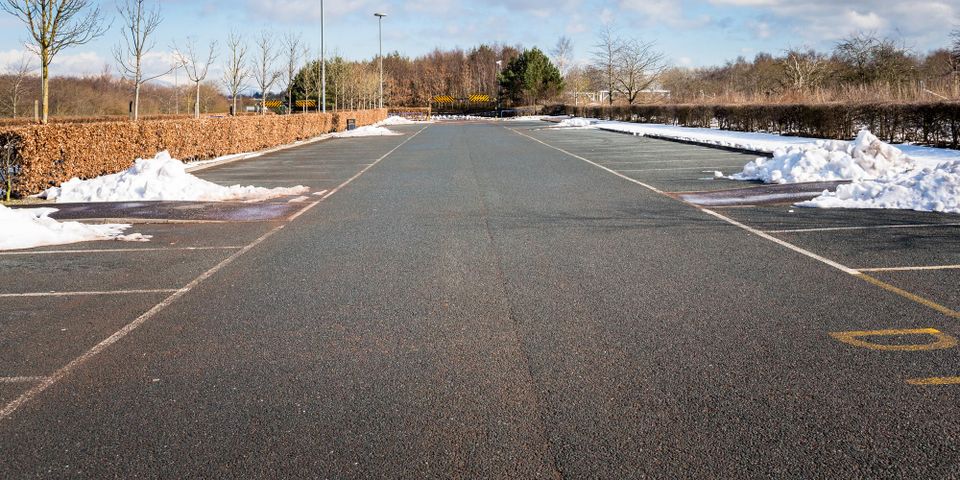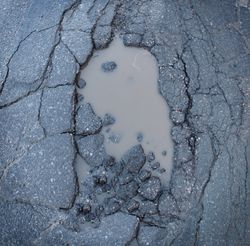
If you own a business, it’s important that you maintain your paved surfaces during fall and winter. Asphalt parking lots are vulnerable to cold weather as freezing water makes any cracks bigger. Below, you’ll find a helpful guide on the effects of harsh weather on the asphalt material and how to prevent potential issues.
Your Guide to Asphalt & Cold Weather
How It Affects Parking Lots
 When temperatures drop during the fall and winter seasons, asphalt parking lots will contract and become brittle, which makes them more susceptible to cracks and potholes. Cold conditions also bring rain, sleet, and snow. When moisture seeps into cracks, it will freeze and expand, resulting in larger fissures and holes.
When temperatures drop during the fall and winter seasons, asphalt parking lots will contract and become brittle, which makes them more susceptible to cracks and potholes. Cold conditions also bring rain, sleet, and snow. When moisture seeps into cracks, it will freeze and expand, resulting in larger fissures and holes.
These issues will make your paved surfaces unsafe to drive on, potentially causing damage to vehicles, such as tire blowouts. Asphalt damages also put pedestrians at risk of tripping and falling, and in the event of injuries, you might be held liable.
Protection & Prevention Methods
Protect asphalt driveways and parking lots against cold weather by inspecting them for damages. If you notice cracks or potholes, hire a paving contractor to fill and repair them. Have your contractor seal coat the asphalt, which will make it more impervious to temperature fluctuations since it blocks UV rays. Seal coating also fills in small gaps and cracks, which prevents moisture from penetrating the surface. Schedule seal coating when the weather is between 50 to 85 degrees Fahrenheit since these conditions will help it cure faster.
The next time you need parking lot repairs, get in touch with Tates Creek Paving. For over 35 years, this paving contractor has provided installation, maintenance, and seal coating services to clients throughout Lexington, KY. Call (859) 255-2501 to request a free estimate on asphalt paving, crack sealing, or patchwork, and visit them online to learn more about their repair services.
About the Business
Have a question? Ask the experts!
Send your question

